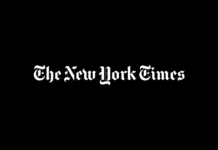HONG KONG — The fluffy white sheep were constantly harassed by wolves, who tore down their houses, ate their food and even sprayed poison gas. It became too much, and 12 sheep who had tried to defend their village were forced to flee by boat. But they were captured and sent to prison.
That story was told in a children’s book published last year in Hong Kong. The sheep represented 12 activists arrested at sea while trying to escape to Taiwan. The wolves were the Hong Kong police.
On Thursday, the police arrested five leaders of the group behind the book, a speech therapists’ union, accusing them of instilling hatred of the government in children.
With the arrests, the authorities expanded, to the most elementary level of printed materials, a crackdown on political speech aimed at stamping out the dissent expressed during mass protests in 2019.
Hours later, in another move against opposing voices, four senior editors and executives of Apple Daily, a pro-democracy newspaper that was forced to close last month, were arraigned and denied bail. They are accused of colluding with foreign powers under a sweeping national security law that Beijing imposed on Hong Kong last year.
More than 100 people have been arrested under that law, including dozens of Hong Kong’s most prominent opposition politicians.
Apple Daily, once one of the city’s biggest newspapers, has been the most prominent media voice targeted by the police. It was shut down after the authorities froze its accounts and accused its founder, Jimmy Lai, and six top editors and executives of violating the security law by calling for American sanctions on Hong Kong officials. Among those six were the four arraigned on Thursday.
But with the arrests of the members of the General Union of Hong Kong Speech Therapists, the crackdown now encompasses children’s books. The police said they believed that the publications were “intended to arouse public hatred, especially among young children,” toward the government and legal authorities.
Li Kwai-wah, a senior superintendent in the police’s national security department, said in a news briefing that the book and others published by the union “simplified and beautified political issues that children had no way of understanding.”
He added that members of the union had “abused their profession” to indoctrinate impressionable children with anti-government views and incite violent and criminal behavior.
The five union members were arrested by the national security department of the Hong Kong police under a colonial-era law on seditious publications. A conviction under the law, which has seldom been used in recent decades, carries a sentence of up to two years in prison.
“It’s alarming not only for trade unions but also alarming for freedom of speech as a whole, for creative works and even using metaphor or commentary,” said Leo Tang, vice chairman of the Hong Kong Confederation of Trade Unions, an umbrella group for pro-democracy labor organizations.
The speech therapists’ union was formed in 2019, during the height of the antigovernment protests, when many new unions were formed in part to challenge the political power of older labor groups aligned with Beijing.
“In Hong Kong right now, the powerless are the unheard, and their voices are not being listened to,” the union wrote in its manifesto. “We are a group of speech therapists, and we should walk with the unheard.”
The union published two other children’s books, including one in which the sheep organize to keep the wolves, who are portrayed as littering and dangerous, out of their village. That book was released in early 2020, when Hong Kong’s opposition camp was lobbying the government to close the border with mainland China to control the spread of the coronavirus. The group also published a reading guide and organized events for parents to read the books with their children.
The police in Hong Kong, which was once a bastion of free speech, have increasingly bristled at criticism of their actions. Security officials have blamed anti-government sentiment for inspiring a man who stabbed an officer and then killed himself on July 1.
Raymond Siu, who was promoted last month to chief of police, has said the media bears responsibility for the public’s anger at the police. He and his predecessor, Chris Tang, who was promoted to security secretary, say they back a law to restrict what they deem fake news, something the government says it is considering.
Even with the security law in place, political cartoons and protest artwork have continued to thrive on the margins in Hong Kong, but that could soon change, said Antony Dapiran, a lawyer and author of two books on protests in the city.
“The fear instilled by these arrests will likely end that,” he wrote on Twitter.
Source : Nytimes













